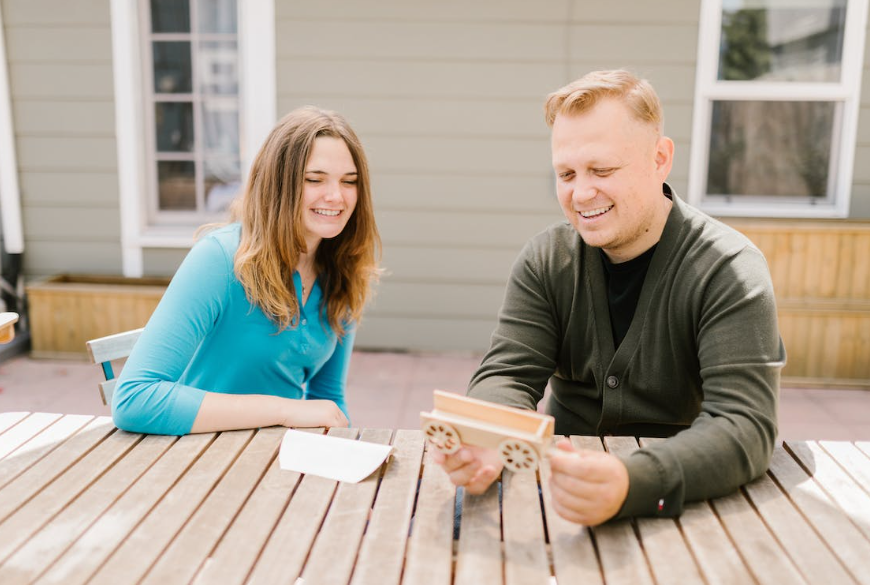Mindfulness Meditation for Beginners
When we meditate, we inject far-reaching and long-lasting benefits into our lives. Let us walk you through the basics in our new mindful guide on how to meditate.

Selfpause Affirmation App
Download the app to get 1,000’s of affirmation meditations and everything you need to write, record and listen to your own.
Mindfulness meditation is a great way to relax and focus on your breathing. It is simple but not easy. There are a few tips to keep you focused on your breath. Here are a few ways to keep your attention on your breath: count your breath, repeat your mantra, or use any other technique to help you stay focused.
Simple

One of the most basic principles of meditation is to focus on your breathing. It is a good idea to practice mindfulness for a few minutes every day. You can start by sitting in a comfortable position and focusing on your breathing. After that, try to focus on various parts of your body and notice their sensations. If your mind wanders, simply acknowledge it and gently bring your attention back to your breathing. This can help you concentrate better.
The practice of meditation can be difficult at first. However, over time, you’ll develop your ability to focus and concentrate. To begin, try doing a two-minute practice each day. Once you feel the benefits, you’ll want to commit to daily practice. If you’re struggling to find time, try cultivating presence in everyday activities.
During meditation, your mind will wander. If you find yourself wandering, smile and gently bring your attention back to your breathing. It is important to realize that you will not be perfect at it, so be patient and try again later. A good teacher or community can help you stay focused and make meditation a habit.
As you practice mindfulness meditation, you will experience various mental and physical benefits. It can help you calm your mind and reduce stress. The benefits of meditation will increase the more you practice it. For those who struggle with meditation, it can be beneficial to use a guided meditation or audio recording. These types of meditations will give you instructions on how to meditate and remind you to remain focused throughout.
Another method of meditation is mantra meditation, which is a powerful way to drop into a deep state of relaxation. It is also a portable practice and can be practiced anywhere.
Not easy

The first step in mindfulness meditation for beginners is to find the time to practice it. You should try to find the same time every day and work up to a 20-minute session. Then you should try to focus on your breathing without judgment. Eventually you will be able to sit for longer periods.
Your mind will wander during meditation, so you should smile and gently come back to your breath. You can also count your breath as you return to the moment. The first time you practice meditation, you might find it hard to stay focused, but don’t give up! The next step is to develop a loving attitude towards your thoughts. Instead of seeing them as a threat or a bother, you should view them as your friends and try to learn to accept them as they are.
You can start by trying one of the free meditation resources available online. One such resource is QuietKit, a website offering free meditation resources for beginners. You can also download a free meditation app, such as Box Breathing. Box Breathing is a Navy Seal breathing technique, which involves inhaling and holding for four seconds. Another free resource is Audio Dharma, a series of dharma talks and vipassana meditations led by Gil Fronsdal and Andrea Fella, and hosted by the Insight Meditation Center in Redwood City.
Taking a few minutes daily to practice mindfulness can lead to a lot of benefits. It can help you improve your concentration and focus, improve your sleep, and improve your quality of life. However, this practice requires a commitment to practice at least 20 minutes a day for at least five to six weeks before you will see a noticeable difference in your mental and physical health.
Benefits

Many studies have shown that practicing mindfulness can enhance one’s mental performance. This technique helps individuals train their attention to the present moment and appreciate life in its entirety. In addition, practicing mindfulness helps individuals achieve a more relaxed state of mind. Among other benefits, mindfulness improves one’s overall health.
Mindfulness meditation for beginners involves sitting quietly and focusing on your breathing. You can also practice the body scan technique, which involves focusing on different parts of your body and noticing sensations there. While practicing, your mind will naturally wander, but it is important to not dwell on it and simply bring yourself back to the present moment by focusing on your breathing.
A good mindfulness meditation practice can also improve the individual’s ability to solve problems. It can help improve creativity, enhance focus, and reduce loneliness. It also enhances social interaction. However, despite the fact that these benefits come from practicing meditation, beginners should keep in mind that success is different for different individuals.
Moreover, mindfulness can also improve one’s physical health. Meditation can improve the ability of individuals to handle stress and a variety of chronic illnesses. Among those benefits, it can help people overcome addictions, which are physiological cravings for substances. By practicing mindfulness, people can be more tolerant of these cravings and avoid relapse after they’ve stopped the habit.
Mindfulness meditation for beginners involves focusing attention on the present moment. Practicing this exercise means that we are free of our ego and do not have to compete with others. This makes us more creative and productive, and helps us overcome the urge to compare ourselves with others.
Regularity

The best way to get the most out of mindfulness meditation for beginners is to practice it on a regular basis. This means making it a part of your day and sticking with it for a few weeks. It is also a good idea to try to avoid attaching too many expectations to it. Treat it like an experiment, and see if you can find yourself practicing mindfulness in other areas of your life as well.
To practice mindfulness meditation, you should find a quiet room where there are few distractions, and sit comfortably. Buddhist meditation teacher Jack Kornfield recommends that you sit with quiet dignity. When sitting, make sure your shoulders and chest are relaxed. You should also soften your belly. After this, try to focus on your breath.
Meditation is an ancient practice, and it can help you improve your health and your life. It can also help you connect with others. Regardless of whether you choose a secular or religious practice, meditation is worth the effort. It takes time and patience to master, so try out different styles and methods until you find the right one.
Creating a daily routine to practice mindfulness meditation can help you stick with it. Aim to set a time each day for meditating, and pair it with another habit you already have. This could be a daily activity such as journaling before bed or drinking coffee in the morning. Beginners may find it hard to sit still for long periods of time, but starting small can help you develop your confidence.
Guided meditations

Guided meditations are a great way to ease into meditation. They give your mind something to focus on so it can relax and sink into inner peace. They are also very accessible and available in many different formats, both free and paid. You can choose a guided meditation that suits your personal needs and desires, such as balancing chakras, anxiety relief, or healing.
Guided meditations are short, so they can fit into your daily schedule. They can be beneficial for beginners and more advanced meditators alike. Many beginners start out by doing one minute guided meditations, which is the best way to learn the basics. Later, they can move up to the more advanced sessions that last for ten or fifteen minutes. You can download guided meditation tracks so that you can listen to them whenever you feel like practicing.
Some guided meditations are accompanied by music. Others have natural background sounds. Some guides use a voice that leads the listener through a guided meditation. A guided meditation encourages you to focus on the breath and your thoughts as you meditate. It also promotes peace of mind and body. A good guide can make meditation an enjoyable experience.
A good guide for beginners can also help you relax and fall asleep more easily. Beginners may find it helpful to listen to a meditation that teaches self-compassion. This technique can reduce depression, alleviate chronic pain, and boost your immune system. Using a guided meditation can help you get into the right mindset to begin practicing yoga.
Although the practice of meditation is not hard, beginners may find it hard to sit still and focus. Guided meditations are great for beginners because they provide reminders to stay focused. They can also help you find a quiet space to practice meditation.
Our Top FAQ's
Mindfulness meditation is a type of meditation that involves focusing your attention on the present moment and accepting whatever thoughts, feelings, and sensations arise without judgment. It is different from other types of meditation, such as concentrative meditation, which involves focusing on a single object or mantra, or transcendental meditation, which involves repeating a mantra in a specific way to achieve a state of relaxation.
Some basic techniques for practicing mindfulness meditation as a beginner include:
- Finding a quiet, comfortable place to sit or lie down
- Focusing on your breath or a mantra to help you stay present
- Notice any thoughts or distractions that arise, but let them pass without getting too caught up in them
- Return your focus to your breath or mantra when you notice your mind wandering
As a beginner, it is generally recommended to start with just a few minutes of mindfulness meditation at a time and gradually increase the length of your practice as you become more comfortable. It is also helpful to set aside a specific time each day to practice, such as first thing in the morning or right before bed.
Some common challenges beginners may face when starting a mindfulness meditation practice include:
- Difficulty staying focused on the present moment
- Difficulty sitting still for long periods of time
- Difficulty letting go of judgment or criticism of oneself
- Distractions from external sources To overcome these challenges, it can be helpful to start with shorter meditation sessions, find a comfortable position, and try to be kind and compassionate towards yourself when your mind wanders. It is also helpful to set aside a specific time and place for your meditation practice to minimize distractions.
Mindfulness meditation can benefit beginners in many ways, including:
- Reducing stress and anxiety
- Improving focus and concentration
- Promoting a sense of well-being and inner peace
- Improving sleep
- Enhancing self-awareness and self-acceptance
- Increasing feelings of gratitude and positivity
- Improving overall health and well-being.
